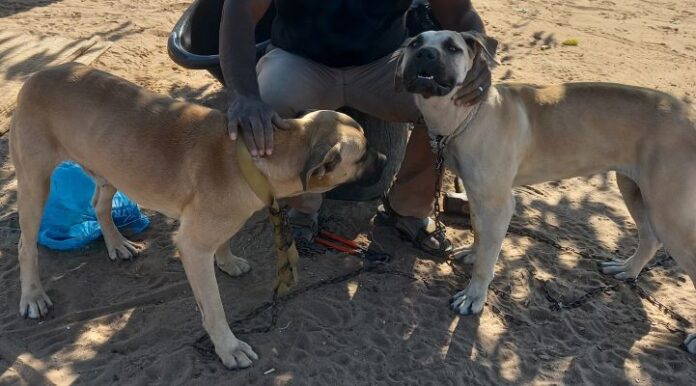The Vaccination Guidelines Group (VGG) of the World Small Animal Veterinary Association (WSAVA) has launched a project to boost understanding of infectious diseases and of the importance of the vaccination of dogs and cats across Sub-Saharan Africa and to advise veterinarians in the region on optimal vaccination practice.
The four-year project follows similar initiatives already completed by the VGG in Asia and Latin America. Both culminated in the production of a set of Regional Vaccination Guidelines, which have been translated into multiple languages and are trusted reference points for veterinarians and other stakeholders in these regions. As part of the Sub-Saharan Africa project, the VGG will conduct a review of the prevalence of infectious diseases and current vaccination practice, together with commercial and regulatory challenges and veterinary education in the region.
The project commenced with a visit to South Africa in May 2023, during which VGG members met key opinion leaders, including first-opinion veterinary practitioners, representatives of small animal veterinary associations and academics and made site visits to veterinary practices in Cape Town and Pretoria. They also met government officials responsible for the assessment and licensing of small companion animal vaccines in the region, representatives from the pharmaceutical industry, and groups involved in rabies control in Africa.
As continuing education (CE) is also an important aspect of these regional projects, the VGG delivered CE events attended by a total of 150 veterinarians in Pretoria and Cape Town, including sharing the results of a survey of local veterinary demographics; the occurrence of infectious diseases and current vaccination protocols that it had carried out as part of its preparation for the visit to South Africa.
During the next three years, VGG members will also visit Kenya, Nigeria and Ghana to carry out similar research and consultation activities. In the final year of the project in 2026, based on the knowledge they have gained, they will produce their Regional Vaccination Guidelines, setting out key recommendations for optimal vaccination practice in Sub-Saharan Africa.
The WSAVA’s VGG is a team of experts from around the world focused on providing evidence-based scientific advice to the global veterinary profession on optimum vaccination practice for dogs and cats. It is chaired by Professor Mary Marcondes with members Dr Cynda Crawford, Dr Richard Squires and Dr Nathaniel Whitley.
Dr Kurt de Cramer, a South Africa-based veterinarian with significant experience in vaccinology in the region, has been seconded to the VGG for the duration of the Sub-Saharan Africa project. Professor Michael Lappin, chair of the WSAVA One Health Committee, also joined the VGG during its visit to South Africa to provide specialist knowledge and advice.
Dr Marcondes said: “A number of scientific issues relating to animal vaccination in Sub-Saharan Africa need to be fully resolved and the region also faces unique challenges in the form of significant infectious diseases, such as rabies. These challenges will make our work in Sub-Saharan Africa both important and rewarding. We look forward to learning more about the current situation in each of the countries we visit before offering our insights and experience in the form of our Regional Vaccination Guidelines. We hope they will help to enhance vaccination practice in the region and, in so doing, support the welfare of companion animals.”
She added: “We are very grateful for the support of the VGG’s long-term partner MSD Animal Health, a Platinum Partner of the WSAVA, which has enabled us to carry out this important work.”
“Initiatives such as the Sub-Saharan Africa Vaccination Guidelines Project are essential because routine vaccination has long been considered one of the well-established ways to prevent illness and help pets live longer, better lives,” said David Sutton, global technical director, Companion Animal Vaccines, MSD Animal Health. “MSD Animal Health continues to be a proud sponsor of the VGG because, together, we recognize the importance of independent expert guidance on vaccination best practice – especially in areas, such as Sub-Saharan Africa, that experience unique infectious disease challenges.”









